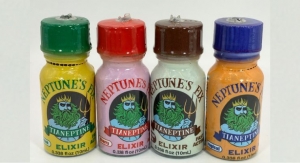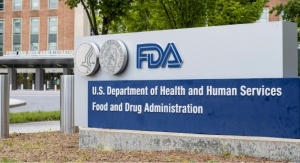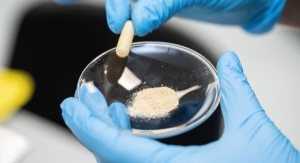12.08.15
Trade associations representing the dietary supplement industry wrote a letter expressing collective support for the elevation of the Division of Dietary Supplement Programs (DDSP) to an “Office” status within the Food and Drug Administration’s (FDA) Center for Food Safety and Applied Nutrition (CFSAN).
The move would provide appropriate regulatory attention to the growing industry and increase FDA’s enforcement activities and priorities, according to the groups, which includes the American Herbal Products Association (AHPA), Consumer Healthcare Products Association (CHPA), Council for Responsible Nutrition (CRN), Natural Products Association (NPA) and United Natural Products Alliance (UNPA).
“The Secretary of Health & Human Services has recently notified Congress of its desire to implement this reorganization within FDA, and we endorse this change on behalf of our members as well,” the letter stated.
The DDSP was established shortly after the passage of the Dietary Supplement Health and Education Act (DHSEA) of 1994. Since that time the dietary supplement industry has grown from around $6 billion in annual sales to more than $35 billion in sales in 2014, according to estimates from Nutrition Business Journal.
“This robust growth of the industry reflects not only increased interest among consumers in these products, but also significant advancements in the science of nutrition and wellness and new regulatory challenges to appropriately monitor this marketplace. We believe that the elevation of DDSP to an ‘Office’ would provide appropriate regulatory attention to the growing industry and increase FDA’s enforcement activities and priorities. In addition, we believe such a reorganization would enhance the effectiveness of dietary supplement regulation by allowing this new Office to better compete for resources and attention within the Agency, along with other products under CFSAN’s jurisdiction (e.g., cosmetics, medical foods). Such a move would aid in accomplishing FDA’s current and long-range goals related to dietary supplements.”
Moreover, the trade groups expressed concerned about rogue individuals and companies that engage in blatant criminal activity by manufacturing and marketing products that masquerade as “dietary supplements” but contain anabolic steroids, active pharmaceutical ingredients (APIs), or analogues of APIs.
“Our associations have consistently urged FDA to engage in stronger enforcement activities to address bad actors that illegally manufacture and sell misbranded drug products falsely labeled as dietary supplements. We believe that elevating DDSP’s status to an Office could help increase FDA’s abilities to take more aggressive enforcement action; raise the visibility and attention for dietary supplement safety and compliance measures at FDA; and better utilize CFSAN’s enforcement resources.”
Currently, as a “Division,” DDSP must compete with other divisions for enforcement priorities within the Office of Nutrition, Labeling, and Dietary Supplements (ONLDS); as an Office, it would share equal stature with the Office of Cosmetics, the Office of Food Additives, the Office of Food Safety, etc., the groups argued.
“While mere restructuring of FDA alone does not assure the appropriate attention to implementation of the Dietary Supplement Health and Education Act, we believe this change represents constructive progress toward more robust enforcement of the law.”
The move would provide appropriate regulatory attention to the growing industry and increase FDA’s enforcement activities and priorities, according to the groups, which includes the American Herbal Products Association (AHPA), Consumer Healthcare Products Association (CHPA), Council for Responsible Nutrition (CRN), Natural Products Association (NPA) and United Natural Products Alliance (UNPA).
“The Secretary of Health & Human Services has recently notified Congress of its desire to implement this reorganization within FDA, and we endorse this change on behalf of our members as well,” the letter stated.
The DDSP was established shortly after the passage of the Dietary Supplement Health and Education Act (DHSEA) of 1994. Since that time the dietary supplement industry has grown from around $6 billion in annual sales to more than $35 billion in sales in 2014, according to estimates from Nutrition Business Journal.
“This robust growth of the industry reflects not only increased interest among consumers in these products, but also significant advancements in the science of nutrition and wellness and new regulatory challenges to appropriately monitor this marketplace. We believe that the elevation of DDSP to an ‘Office’ would provide appropriate regulatory attention to the growing industry and increase FDA’s enforcement activities and priorities. In addition, we believe such a reorganization would enhance the effectiveness of dietary supplement regulation by allowing this new Office to better compete for resources and attention within the Agency, along with other products under CFSAN’s jurisdiction (e.g., cosmetics, medical foods). Such a move would aid in accomplishing FDA’s current and long-range goals related to dietary supplements.”
Moreover, the trade groups expressed concerned about rogue individuals and companies that engage in blatant criminal activity by manufacturing and marketing products that masquerade as “dietary supplements” but contain anabolic steroids, active pharmaceutical ingredients (APIs), or analogues of APIs.
“Our associations have consistently urged FDA to engage in stronger enforcement activities to address bad actors that illegally manufacture and sell misbranded drug products falsely labeled as dietary supplements. We believe that elevating DDSP’s status to an Office could help increase FDA’s abilities to take more aggressive enforcement action; raise the visibility and attention for dietary supplement safety and compliance measures at FDA; and better utilize CFSAN’s enforcement resources.”
Currently, as a “Division,” DDSP must compete with other divisions for enforcement priorities within the Office of Nutrition, Labeling, and Dietary Supplements (ONLDS); as an Office, it would share equal stature with the Office of Cosmetics, the Office of Food Additives, the Office of Food Safety, etc., the groups argued.
“While mere restructuring of FDA alone does not assure the appropriate attention to implementation of the Dietary Supplement Health and Education Act, we believe this change represents constructive progress toward more robust enforcement of the law.”



























